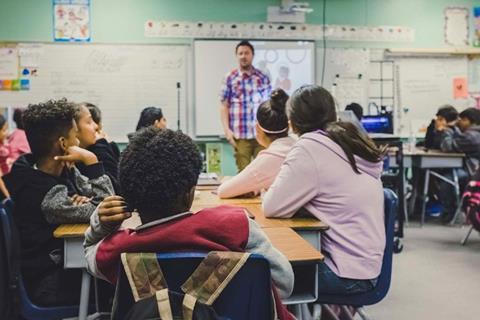Claire Hailwood has led conversations about sex in school and home and believes the Evangelical Alliance Resource strikes a good balance

Picture the scene.
I was on a merry-go-round at Christmastime with my Mum and my then two-year-old daughter. It was an idyllic Christmas scene.
Then I heard this conversation across the airwaves as my horse went up and down…
”Mate, mate, look it’s the sex lady”
”Oh yeh, Miss! Miss! No chlamydia here!”
This was repeated in various forms for the duration of my ride and accompanied by some actions that I don’t want to use my word count up to describe.
On the flip side, it was the closest I’ve ever got to feeling famous
In that part of my youth work career, I was delivering sex and relationships education sessions in every high school in the city including with these young men.
I thought there was nothing I hadn’t heard or been asked. There was nothing that embarrassed me or made me flinch in the classroom. I relished the opportunity to engage young people in conversations about relationships and why they were important, to talk about sex and how to stay healthy, discussing the impact of pornography and the pressures there were for young people.
Yet as I considered having conversations with my own children in my family, I realised that not all of this was transferrable. I couldn’t (and shouldn’t) just open my laptop and begin my powerpoint presentation all about STIs over teatime.
I did remind my teenagers of my previous job recently when they were talking about how ‘cringe’ a particular teacher was as he delivered a recent PSHE lesson. I offered to come in and deliver a few sessions instead. I think their current teacher suddenly seemed not such a bad option.
All jokes aside, if we, as parents and carers don’t speak to our children about this, then all their learning will happen via their screens or through conversations with peers. Too much sex ‘education’ happens through pornography which isn’t the teacher many of us want for our children. (See also ’Why should I wait to have sex?’)
So, I was encouraged to see a resource created by the Evangelical Alliance for Christian families called Time to Talk created to help in these types of conversations because, as the intro says, “talking about sex and relationships can be challenging but silence isn’t an option”.
The premise of the report is that it has been created for adults to have better conversations. Too often churches and Christians have approached these topics in ways that exclude, ostracise and ‘other’ people. We won’t all agree with one another, even within our family, but the objective of this report to grow confidence in adults and giving us tools to grow skills I think is a great start.
As a parent I want to have conversations and explore things with our children in a way that creates safety for all of us to wonder about what we believe and ask questions, even when that makes me nervous because I want to protect them or because I’m not sure how to navigate the journey.
In the report there are case studies on pornography, sexual harassment and consent, gender identity and more. There are some principles outlined and ideas for practical next steps and conversations as well as bigger picture content rooted in the Bible.
There may still be things that you agree with or alternatively that you’d like to have seen communicated more strongly in a particular direction, but if the purpose of the report is to help parents and carers face these subjects and consider ways to communicate, then I think it will be a helpful starting point for some.
One of the ‘handy hints’ shared that I love is not to settle for the ‘big talk’ but rather for conversations about sex and relationships, alongside so many other things, to be part of our everyday. It’s a challenge because our values need to consistently be lived out or our brilliant children will (rightly) notice. And if this resource is a helpful start for some parents and carers who lack in the confidence with how they might do this, then I think that’s a good thing.
One thing that I’d add, is the importance of laughter which disarms and unites. And makes potentially awkward conversations (for all involved) a bit more fun!































